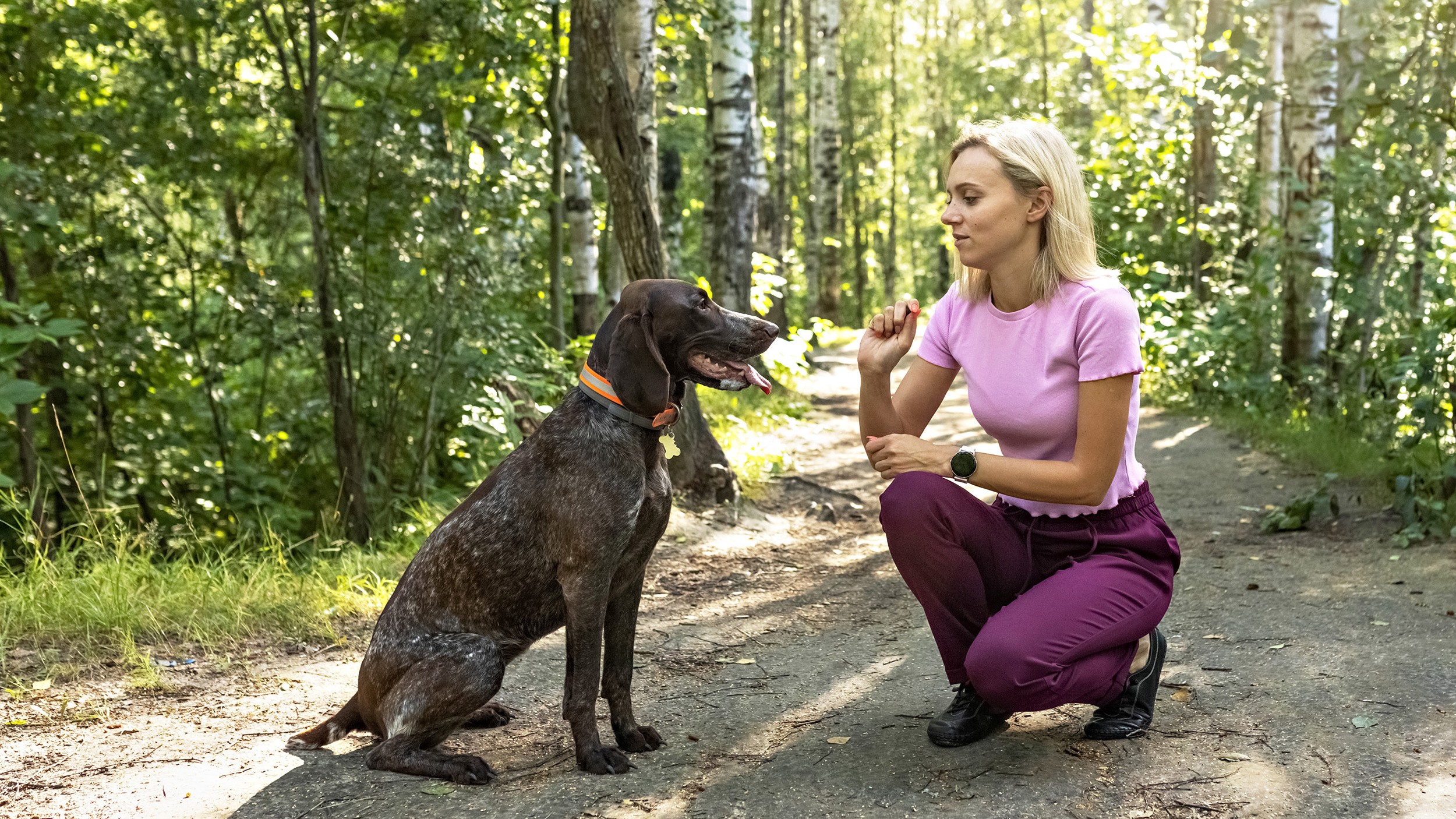How to get the most out of your dog trainer — five tips from a professional
Get the most out of those dog training sessions with these five simple tips from an expert

When it comes to overcoming particular behavioral issues or mastering important skills, many dog owners turn to professional trainers to help their canine companion learn the ropes of what's expected of them.
But did you know that as a pet parent, you also have a role to play?
While you'll want to know how to spot dog trainer red flags to ensure you're working with a suitably qualified professional, once you've chosen a great trainer, there are things you can do to help your dog get the most out of their training sessions.
Whether you have a badly behaved dog in need of some extra support or your beloved bundle of fluff just requires some guidance to walk well on their leash, working with a trainer can help you see positive progress in a short space of time — as long as you do your bit.
Below, expert trainer and behaviorist Nikki Mather shares five simple things you can do to ensure you and your dog reap the rewards of those precious training sessions. Read on as Mather reveals all...
A post shared by Positive Steps Dog Training (@positivestepsdogtraining)
A photo posted by on
1. Prioritize your training: "Life is busy, and it's easy to make excuses, but if you don't prioritize your dog's training, you'll likely 'never have time' and will therefore make no progress. You're paying money for a service, so be sure to prioritize it," Mather advises.
2. Come prepared: "Come to the session with the equipment that we have suggested, such as treats, toys, leads etc," says Mather. "You'll get the most out of your session with us if you have exactly what you need for the training."
PetsRadar Newsletter
Get the best advice, tips and top tech for your beloved Pets
3. Ask questions: "Our sessions will be packed with information, and sometimes it may feel a little overwhelming!," Mather explains. "If you're unsure about something, ask. We are used to explaining our methods in a million different ways, and you'll become a better trainer if you understand the WHY of what you're doing."
4. Practice what we teach: "Your dog's behavior will not change by attending a one-hour session every week. For the training to be successful, you have to practice and be consistent. The harder you work, the more we can progress within our sessions together."
5. Update us: "Most trainers will offer some sort of communication between sessions included in their price. Utilize what you've paid for by keeping us in the loop! Tell us what's going well and what isn't so that we can better adapt your training," says Mather.
Whether you're pondering the reasons why your dog's recall isn't reliable or you're keen to avoid the most common loose leash walking mistakes, employing the services of a professional trainer who uses positive training methods can be a great way to get your dog's behavior on track.

Kathryn is a freelance writer who has been a member of the PetsRadar family since it launched in 2020. Highly experienced in her field, she's driven by a desire to provide pet parents with accurate, timely, and informative content that enables them to provide their fur friends with everything they need to thrive. Kathryn works closely with vets and trainers to ensure all articles offer the most up-to-date information across a range of pet-related fields, from insights into health and behavior issues to tips on products and training. When she’s not busy crafting the perfect sentence for her features, buying guides and news pieces, she can be found hanging out with her family (which includes one super sassy cat), drinking copious amounts of Jasmine tea and reading all the books.
